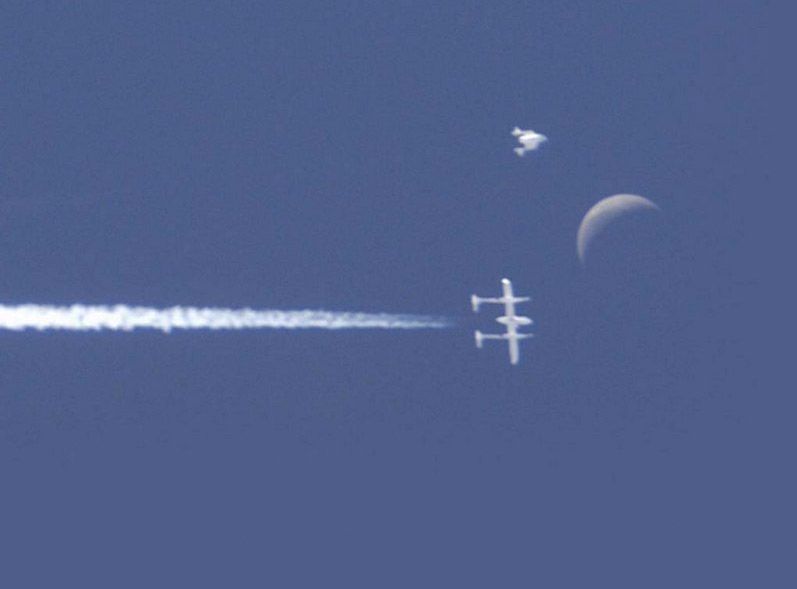
While scientific discovery may be its own reward, the lure of prize money has fueled many a new innovation.
In addition to quantity, prize challenges draw unconventional people into a field, while the thrill of competition drives people to share ideas and think in novel ways, said Neta Zach, the scientific director of Prize4Life Inc., an organization that offers money for medical breakthroughs. "It's part of the psychology of prizes," Zach said. "If you give them a prize, they try to outsmart themselves and come up with new solutions, and are also more willing to venture into new fields."
Here are some of the notable scientific contests and their resulting innovations.
Tackling ALS
Amyotrophic lateral sclerosis (ALS) is a debilitating disease with poor treatment options. Sufferers lose the capacity to walk, talk and breathe, as the nerves that control their muscles die. But because ALS is relatively rare — about 5,600 people diagnosed per year, according to ALS Association — and medical trials take so long to complete, few companies were developing treatments.
To jump-start research, in 2006, Prize4Life Inc. offered a $1 million incentive to develop a cheap, accurate test for disease progression. Seward Rutkove, a researcher at Beth Israel Deaconess Medical Center in Boston, won the challenge in 2011 with a system to measure electrical current in muscles. Because current flows differently through sick and healthy tissue, the intensity and speed of the current can identify which patients have faster disease progression. The organization announced two other prizes this summer: $25,000 for a computer algorithm that uses patient charts to predict when ALS will progress rapidly, and $1 million for a treatment that prolongs life in mice by at least 25 percent.
Commercial Space Flight
Sign up for the Live Science daily newsletter now
Get the world’s most fascinating discoveries delivered straight to your inbox.
Space travel had long been the province of dreamers, but the Ansari X Prize brought the possibility of commercial spaceflight down to Earth. The challenge prize, created by engineer and entrepreneur Peter Diamandis, offered $10 million to the first team to launch a spacecraft 60 miles (100 kilometers) above the Earth while carrying three passengers, and make the trip twice in two weeks. Engineer Bert Rutan and entrepreneur Paul Allen won the prize in 2004, breaking the government stronghold on space travel. Since then, several companies have built ships to ferry private citizens into space. One company's inaugural flight could come as early as next year, with tickets starting around $95,000. [9 Ideas for Innovative Ideas in Exploration]
The Perfect Movie
The Netflix Challenge focused on something much closer to home — how to give users the best movie recommendations possible. The video rental company offered $1 million for an algorithm that could improve upon their existing program by 10 percent. In 2009, a team of statisticians, engineers and computer scientists won the prize.
The competition inspired several other challenges, including one to improve music recommendations and another to enhance mobile phone computing, and spawned new research into prediction modeling. Ironically, the winning Netflix algorithm itself was never used, as streaming video became more popular and the company could rely on new, richer types of data to offer recommendations. [10 Scariest Movies Ever]
Crossing the Atlantic
The Ansari X Prize was inspired by the original flight challenge. When hotel owner Raymond Orteig initially offered $25,000 for the first trans-Atlantic flight in 1919, the idea was so absurd that no one took him up on it. Just eight years later, aviator Charles Lindbergh completed the 30-hour trip. Many others had failed, but he managed the feat by designing a lightweight plane with a single engine, eliminating unnecessary weight such as other crew members and parachutes, and manning the plane solo for the entire flight.
Navigating Ships
Challenge prizes are far from new. "The notion of prizes and the wisdom of the crowd have been in the background forever," Zach said. In the 1600s, many sailors were lost at sea because they could not determine their longitude. While seamen used the sun's position to determine their latitude, or north-south position, navigating east-to-west in the open ocean required knowing the time at a reference location. In 1714, the British Parliament offered a reward of 20,000 pounds to anyone who could determine longitude to half a degree, or keep time to within two minutes on the rough seas from Britain to the West Indies. Though it took decades and several designs, commoner John Harrison's ultra-precise clock ultimately won the prize in 1765.
Follow LiveScience on Twitter @livescience. We're also on Facebook & Google+.

Tia is the managing editor and was previously a senior writer for Live Science. Her work has appeared in Scientific American, Wired.com and other outlets. She holds a master's degree in bioengineering from the University of Washington, a graduate certificate in science writing from UC Santa Cruz and a bachelor's degree in mechanical engineering from the University of Texas at Austin. Tia was part of a team at the Milwaukee Journal Sentinel that published the Empty Cradles series on preterm births, which won multiple awards, including the 2012 Casey Medal for Meritorious Journalism.











